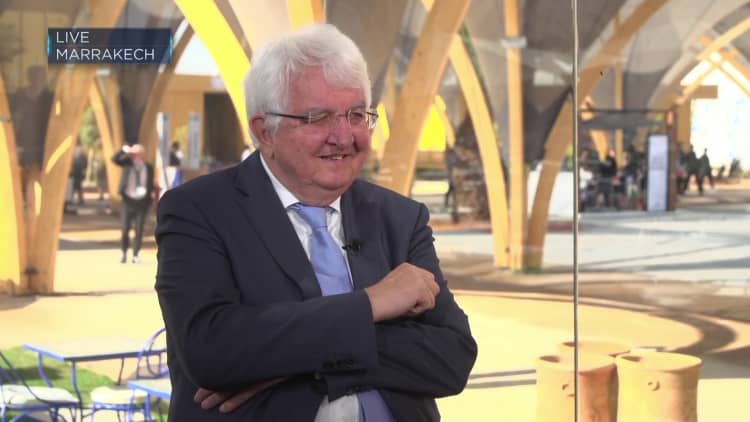Christine Lagarde, President of the European Central Bank (ECB), speaks during an ECB press conference in July.
Picture Alliance | Picture Alliance | Getty Images
FRANKFURT — The European Central Bank is expected to keep rates on hold when it meets this week in Athens.
While inflation pressures are easing and the economic outlook is worsening for the euro area — the 20 nations that share the euro — the ECB will insist on keeping rates high for a prolonged period of time.
With recent bond market volatility, talk of an earlier exit from its quantitative tightening program might have to be postponed.
“While inflation continues to decline, the attacks on Israel, and the potential knock-on effects on the oil market, pose a new upside risk to inflation,” said Dirk Schumacher, an ECB watcher at Natixis in a research note.
“Downside risks to growth, at the same time, have also increased, complicating the picture further for the ECB.”
Inflation decline
The inflation print in September showed a decline to 4.3% down from 5.2% in August according to Eurostat. That’s faster than expected but upside risks to inflation prevail through wage effects and the threat of a higher oil price.
Since the last ECB meeting — which only saw a small majority of council members vote for a rate hike — bond yields have risen substantially, causing some concern in Frankfurt.

“Rising long-term interest rates, depending on the underlying causes, and increased market volatility could thus be the main challenges to the ECB’s current policy stance and efforts to avoid a recession,” said Anatoli Annenkov, a senior European economist at Societe Generale, in an ECB preview note.
The rise in yields might also weigh on discussions as to whether to speed up the reduction of the ECB’s balance sheet.
“Higher global bond yields and wider spreads (not least for Italy) suggest to us that it could be destabilising for the ECB to accelerate QT related to the PEPP – or even discuss the matter in great detail in next week’s meeting,” said Reinhard Cluse of UBS in an email to CNBC.
PEPP, or the Pandemic Emergency Purchase Program, is a flexible bond purchase program introduced during the coronavirus pandemic.
“Should markets calm down again over the coming weeks and months, we would still see a chance that the ECB might eventually bring PEPP-QT forward by a few quarters.”
As well as QT, the question of how long is “higher for longer” will be a big topic in Athens. In other words: when will they start cutting rates?
“The Governing Council will be cautious about wrongly pivoting towards a cut too soon. We expect the first cut in Sep-24. The risk is shifting towards Jun-24,” Mark Wall, chief economist with Deutsche Bank, said in a research note.

